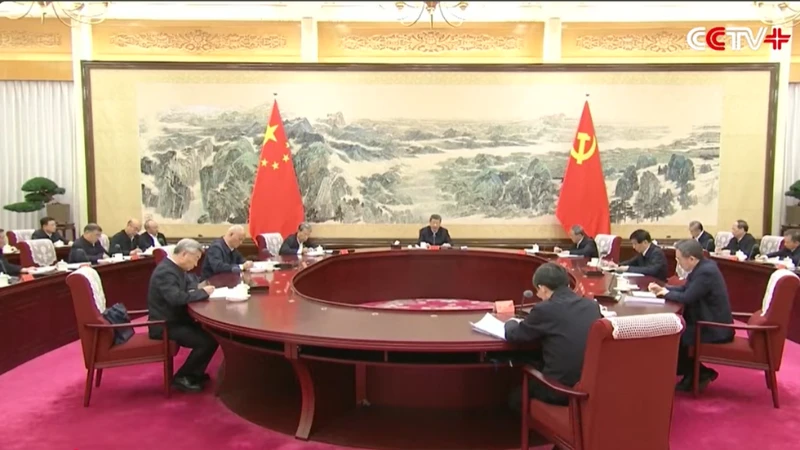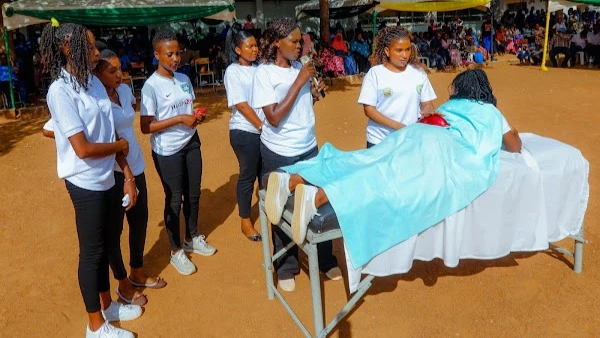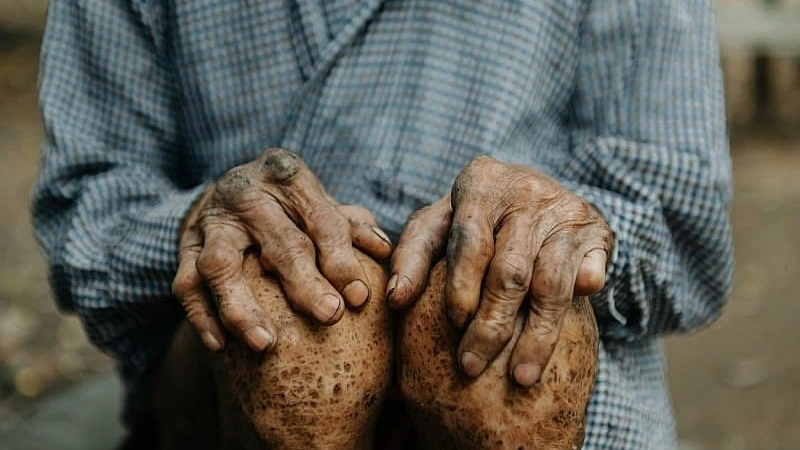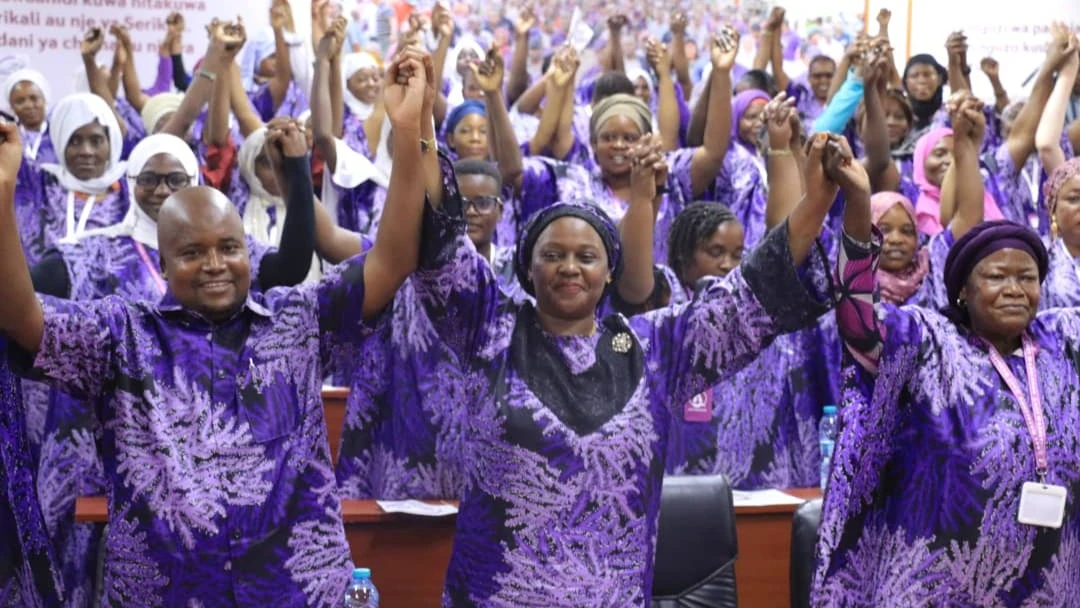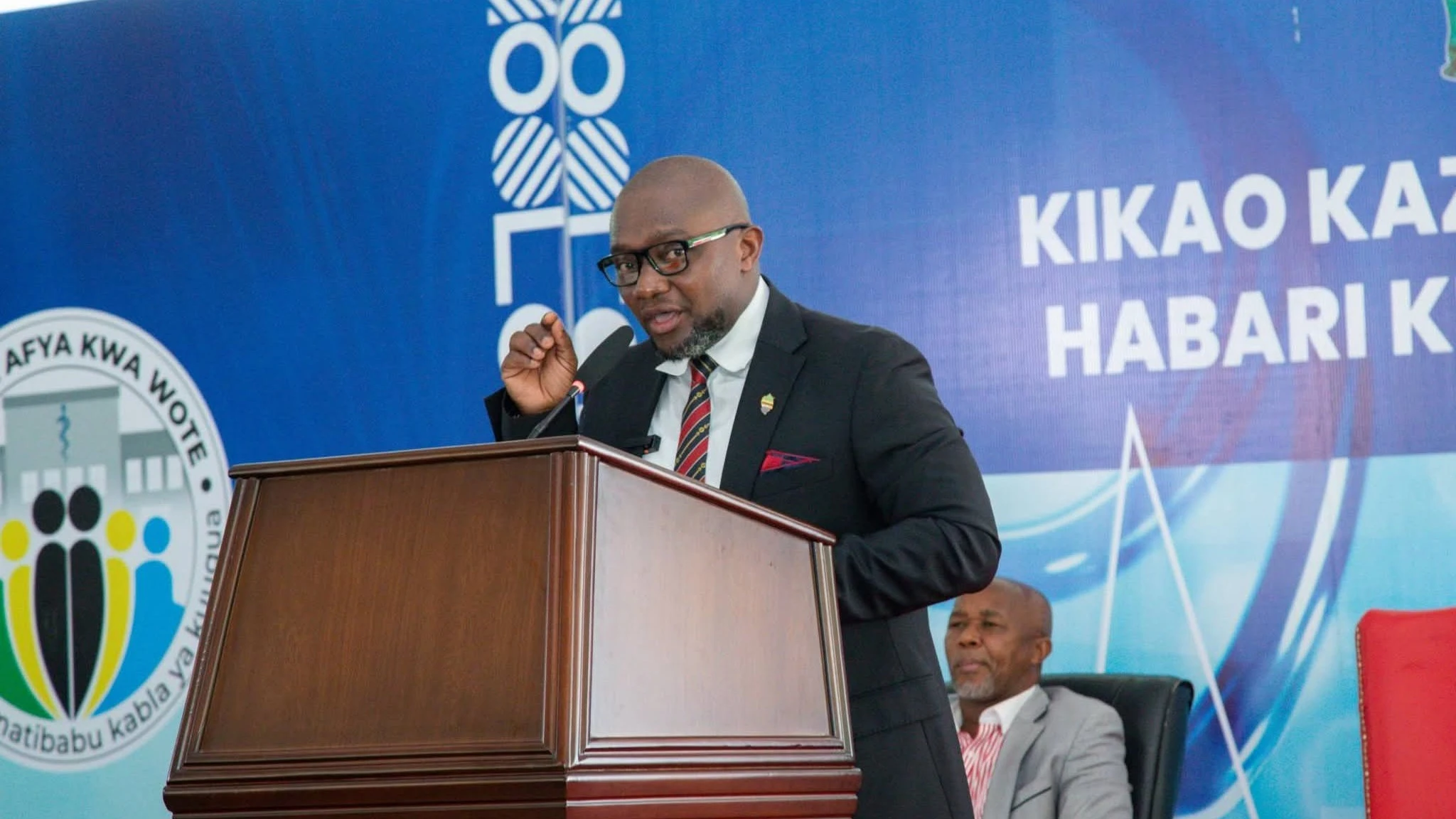Tanzania’s HPV vaccination drive advances, combating misinformation about the vaccine
It has been slightly over six months since the government launched a campaign to vaccinate girls aged nine to 14 against human papillomavirus (HPV) vaccination rates, in a campaign hampered by rumours and widespread misinformation.
On April 22, Tanzania began administering the HPV vaccine to girls, but some parents have prevented their children from being vaccinated, citing fears for their daughters’ health and future fertility.
One such parent is Doris Shemweta, a resident of Mabibo in Dar es Salaam, who forbade her daughter from getting the vaccine. She believes the vaccine could affect the fertility of her daughter, who is in Form Two.
"Has my daughter said she doesn’t want to have children? I also want to be called a grandmother in the future, so I have told her not to take the vaccine until I see someone who was vaccinated in the past and has children; only then will I believe," she said.
Shemweta's belief is driven by discussions she saw on Facebook, a social media platform. She says she’s never heard the government explain anything about the vaccine.
This fear, based on social media rumours, is symbolic of a larger battle between public health officials and widespread misinformation that has slowed the uptake of the preventive vaccine.
According to the HPV Information Center, 18.8 million Tanzanian women and girls aged 15 years and older are at risk of developing cervical cancer. Moreover, under current estimates, 10,241 women are diagnosed with cancer every year, and 6,525 die from the disease. The Ministry of Health Bulletin 2022 reported that in the East African region, Tanzania has the second highest cases of cervical cancer deaths, with an age-standardised incidence rate of 54.9 deaths per 100,000 women, after Kenya.
Despite the alarming statistics, fear and misinformation have hindered the vaccination campaign. Veneranda Kiseo refused to allow her 16-year-old child to get the vaccine, fearing that it would affect her daughter’s future fertility.
"Teachers have been calling me, asking me to allow my child to get the vaccine, but I refuse. I have heard from relatives and friends that the vaccine is a plan by developed nations to reduce the population of Africa to lessen the aid they provide," she said.
When asked why she refused this vaccine while allowing her child to receive vaccines for smallpox and tetanus, she said she was confident in those vaccines because she received them and did not experience any harm.
In a discussion held on WhatsApp, Deus Mathias said he could not allow his 12-year-old child to get the vaccine because it aims to reduce the population.
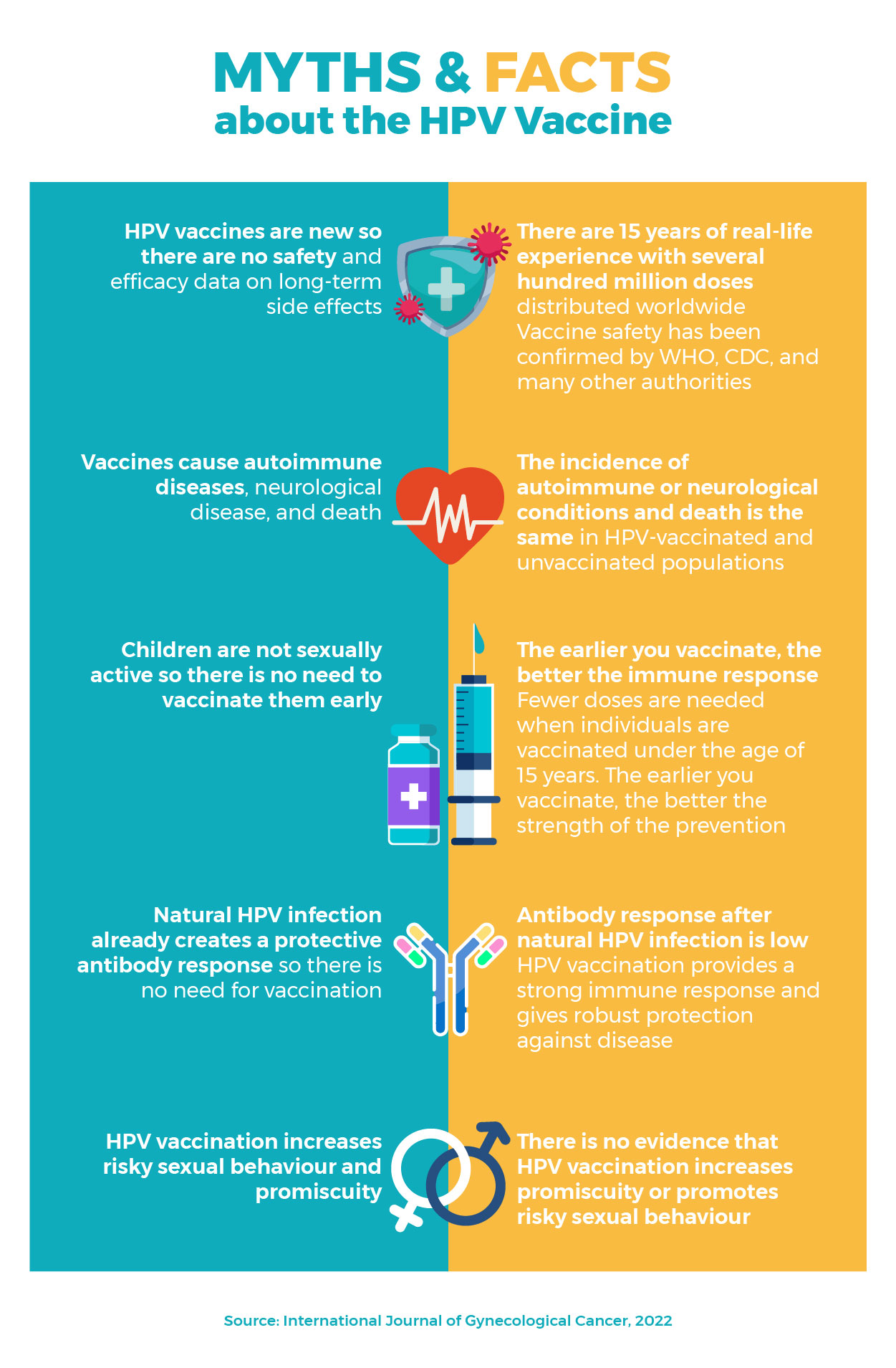
He questioned why boys are not vaccinated when information shows that this cancer affects both genders. He wondered why children under 14 were being vaccinated when the disease affects people at the age of 25.
"Why are they forcing us to believe that the vaccine is safe when those who started getting vaccinated in 2014 at the age of 14 are now 24 years old, and we have no information about whether they have had children?" he asked.
Dr. Norman Jonas, a medical instructor from the Ministry of Health, refutes this fear, stating that there is no relationship between the vaccine and infertility.
“Since it began being administered in Tanzania in 2014, we have never received any report of someone who used it failing to conceive. Scientific studies show that the appropriate age to administer the vaccine is between 9 and 14 years, believed to be before puberty. HPV affects humans, and its infections occur without symptoms," he explained.
Among 100 people infected with this virus, 90 are affected by the existing 200 types of the virus, with 40% of infections occurring through sexual activity.
According to the World Health Organisation (WHO), cervical cancer is caused by persistent infection with the human papillomavirus (HPV). Women living with HIV are six times more likely to develop cervical cancer compared to women without HIV.
It's the fourth most common cancer in women globally, with around 660,000 new cases and around 350,000 deaths in 2022, with the highest in sub-Saharan Africa (SSA), Central America, and Southeast Asia.
Dr. Ntuli Kapologwe, Director of the Preventive Services Department at the Ministry of Health, outlines the government's proactive approach to the HPV vaccination campaign.
"The first phase of administering these vaccines was closely monitored to check for any major side effects, and we found none," he states.
“After confirming its safety, the government officially launched the campaign in 2018, initially administering two doses six months apart. This year, based on research indicating both one and two doses are equally effective, we transitioned to a single dose.”
As the government continues its campaign to vaccinate against cervical cancer (HPV) for girls aged nine to 14, rumours about the vaccine causing harm to youth have slowed its implementation.
Since the vaccine began to be administered on April 22 this year, there has been fear in the community, especially among parents, regarding its safety for children's health. Some have prevented their children from getting vaccinated, believing it has specific goals, including diminishing the fertility of Tanzanians.
According to the HPV Information Center, 18.8 million Tanzanian women ages 15 years and older are at risk of developing cervical cancer, with a current estimation that every year 10,241 women are diagnosed with cervical cancer and 6,525 die from the disease.
The Ministry of Health Bulletin in 2022 reported that Tanzania ranks second in cervical cancer-related deaths in the East Africa region, with an age-standardised incidence rate (ASR) of 54.9 per 100,000 women, followed by Kenya, which has 40.1 per 100,000.
Doris Shemweta, a resident of Mabibo in Dar es Salaam, says she prohibited her daughter, who is in Form Two, from receiving the vaccine because it affects fertility and could prevent her from getting pregnant.
"Has my daughter said she doesn’t want to have children? I also want to be called a grandmother in the future, so I have told her not to take the vaccine until I see someone who was vaccinated in the past and has children; only then will I believe," she said.
When asked where she got the information that the vaccine affects fertility, she said she saw people discussing it on the social media platform Facebook and had never heard the government explain.
Veneranda Kiseo says teachers have been calling her every year asking her to allow her child to get the vaccine, but she refuses, fearing her child will not have children because she believes it is intended to reduce fertility.
She said relatives and friends say that the vaccine is a plan by developed nations to reduce Africa’s population to lessen the aid they provide.
When asked why she refused this vaccine while allowing her child to receive vaccines for smallpox and tetanus, she said she was confident in those vaccines because she received them and did not experience any harm.
In a discussion held on WhatsApp, Deus Mathias said he could not allow his 12-year-old child to get the vaccine because it aims to reduce the population through girls.
He questioned why boys are not vaccinated when information shows that this cancer affects both genders.
“Why are children under 14 being vaccinated when the disease affects people at the age of 25? Why are they forcing us to believe that the vaccine is safe when those who started getting vaccinated in 2014 at the age of 14 are now 24 years old, and we have no information about whether they have had children?” he asked.
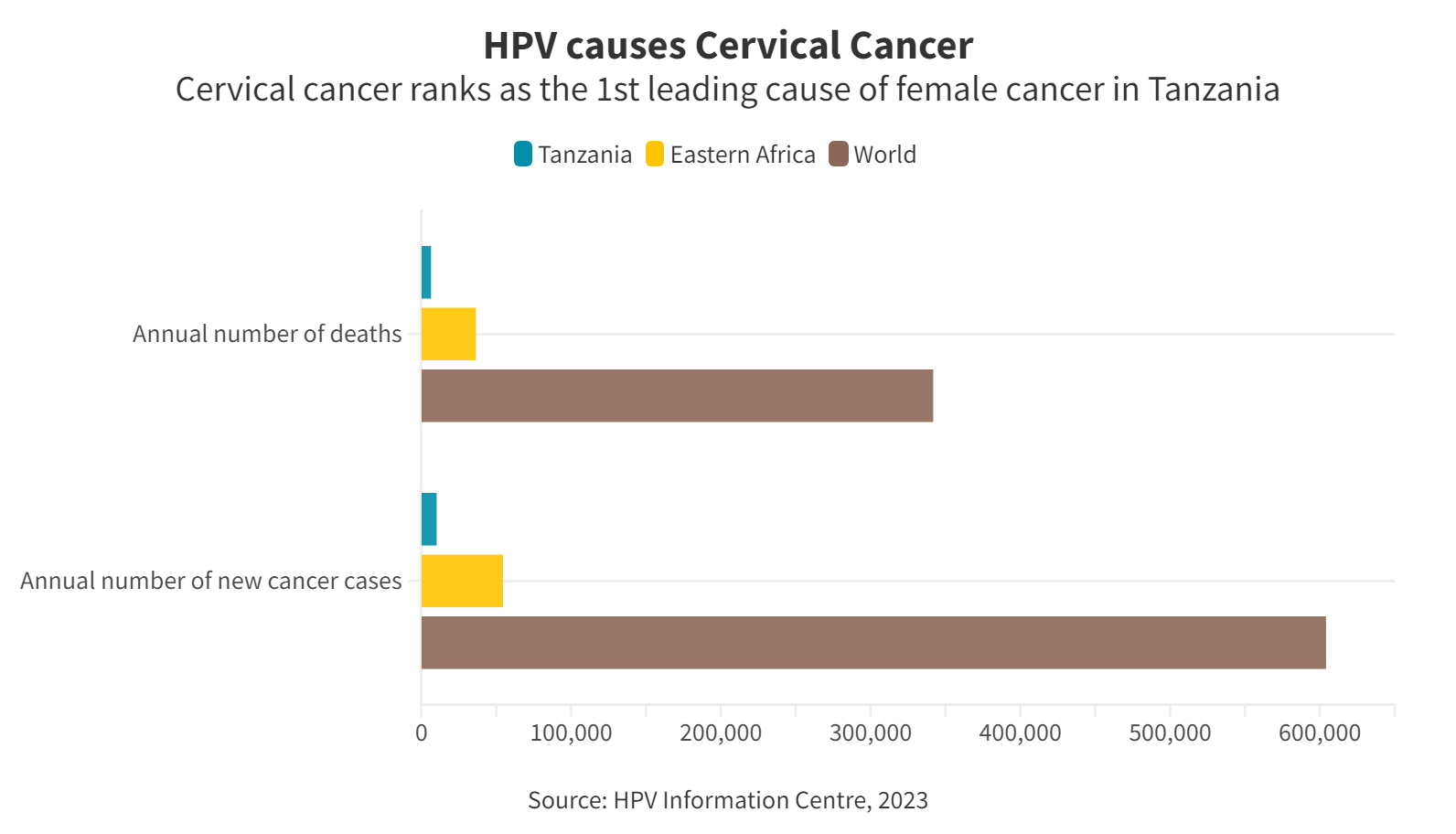
What doctors say
Dr. Norman Jonas, a medical instructor from the Ministry of Health, says there is no link between the vaccine and infertility. Since it began being administered in 2014, they have not received reports of anyone who failed to conceive, so it is safe for girls.
"Scientific studies show that the appropriate age to administer the vaccine is between 9 and 14 years, believed to be before puberty. HPV affects humans, and its infections occur without symptoms," he said.
He added that HPV affects many people and has no symptoms. Among 100 people infected with this virus, 90 are affected by the existing 200 types of the virus, with 40% of infections occurring through sexual activity.
Dr. Ntuli Kapologwe, Director of the Preventive Services Department at the Ministry of Health, says the first phase of administering these vaccines was accompanied by close monitoring to check for any major side effects and address them, but there were no reports of such incidents.
After being satisfied with its safety, they continued to administer the vaccine and officially launched it in 2018, continuing to give it in two doses, six months apart, but this year they changed to giving only one dose after research showed that both two and one dose work equally well.
He says the government has emphasised the administration of this vaccine because cervical cancer is the leading type, accounting for 23% of all cancer cases in the country, followed by esophageal and breast cancer.
"The government has analysed and found that it costs a person over Sh.8 million initially and more depending on the severity of the disease," he said on the cost of treating cancer.
Dr. Florian Tinuga, National Immunisation Program Manager, says the vaccine is given to children aged 9 to 24 based on scientific research showing that if a child is vaccinated early, they will have sufficient immunity by age 25 when they are at a higher risk of infection. The Tanzania Demographic and Health Survey shows that 14 percent of women aged 25 to 49 years start having sex by age 15.
"This age is considered because science shows it is the age when this vaccine can generate sufficient immunity against this virus, so the Ministry has also considered this based on scientific evidence," explained Dr. Tinuga.
He says although the vaccine is voluntary, children should be vaccinated because it is important and safe for girls. It is provided free at health centres and government and private hospitals, and is also available to children in their schools.
He says in this group, three doses of the vaccine will be given to girls living with HIV and one dose to those who are not.
He says that as of April 26 this year, the distribution of one dose of the HPV vaccine had reached about 90% of the target group since it began being administered on April 22, 2024, indicating significant enthusiasm in the community.
HIV-positive people have a higher risk
Dr. Maryam Amour, a Specialist in Internal Medicine and Public Health, advises those living with HIV to get screened for this cancer from the age of 25 because they are at higher risk of infection.
She identified another high-risk group as women aged 30 to 50 and advised them to get screened every three years so that if detected, treatment can begin early before the disease becomes severe and untreatable.
She said research conducted in nine countries, including Tanzania, showed that many girls start having sexual intercourse at the age of 15 and older, which is why the vaccine starts with girls aged 9 to 14 to prevent them from getting infected at a young age.
Change of heart
Happy Enea says she allowed her child to get the vaccine last year after forbidding it for three years because she received education from reproductive health experts about its importance for her daughter.
She says since her child got the vaccine, she has not seen any changes or heard her complain of any reproductive pain, and she menstruates as usual.
She advises the government to increase efforts to educate the community, including in hospitals, bus stations, and offices, and to place advertisements on television to reach more people.
This article was produced as part of the Aftershocks Data Fellowship (22-23) with support from the Africa Women’s Journalism Project (AWJP) in partnership with The ONE Campaign and the International Center for Journalists (ICFJ).
Top Headlines
© 2026 IPPMEDIA.COM. ALL RIGHTS RESERVED









